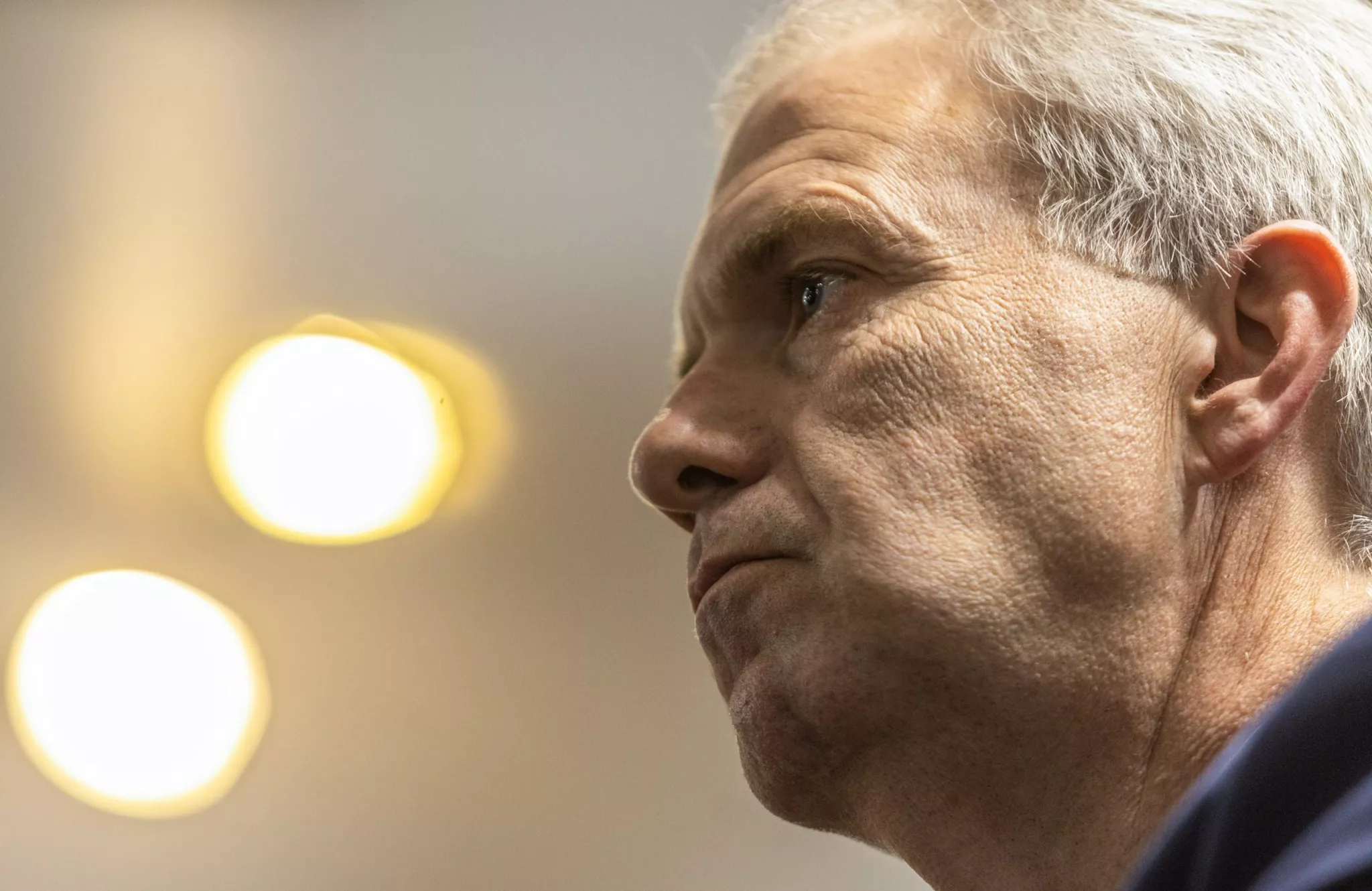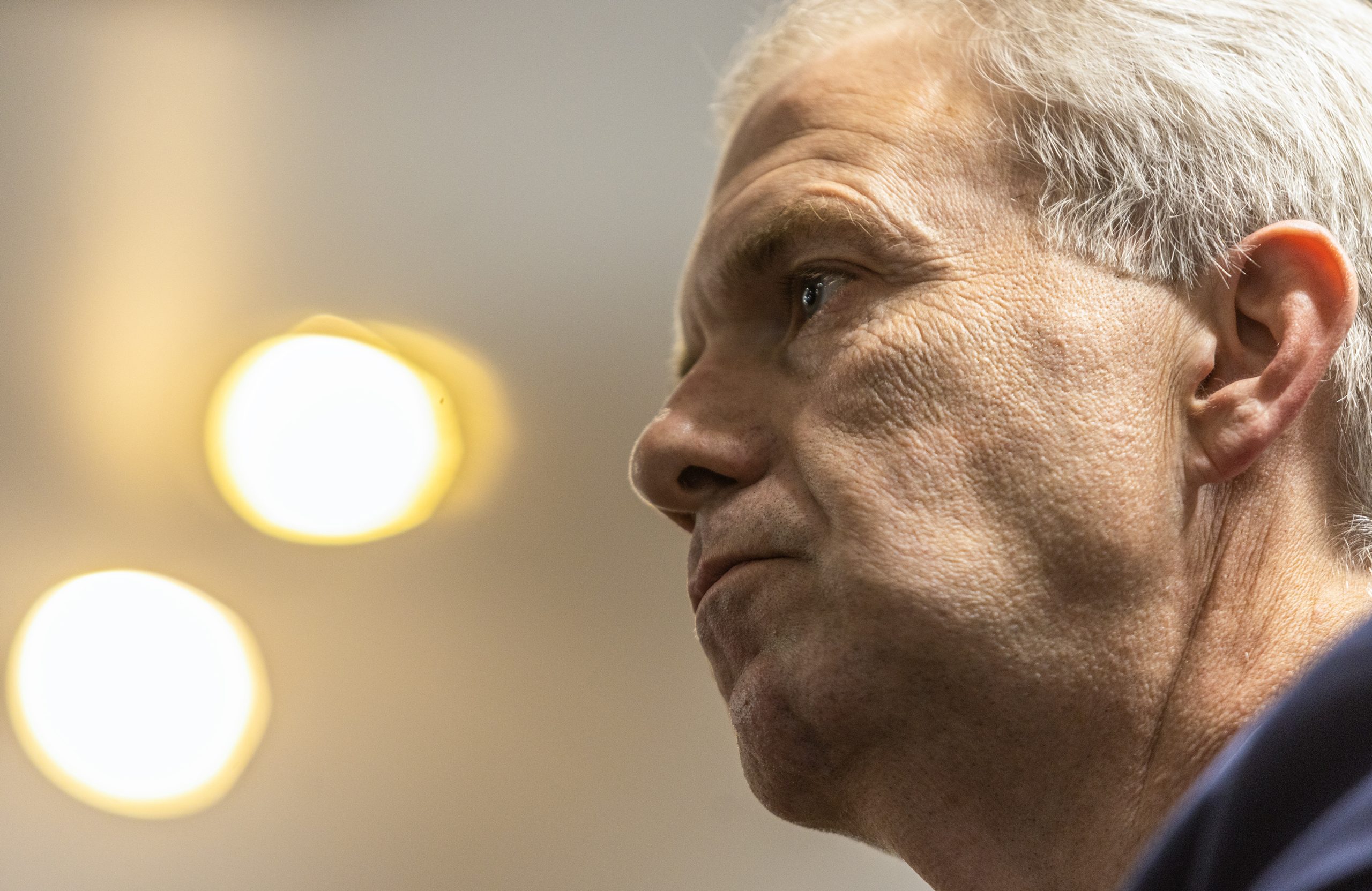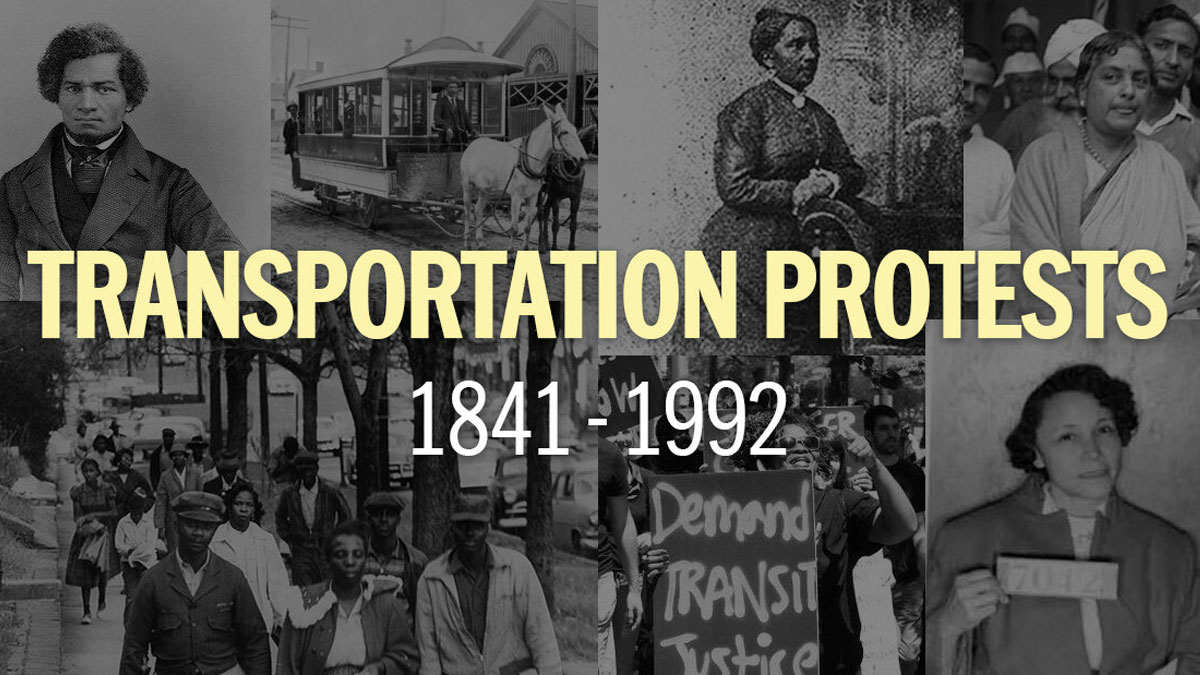Mississippi Today
Former Republican congressman endorses Democrat Brandon Presley for governor


Former Republican U.S. Rep. Mike Parker of Mississippi endorsed Democratic gubernatorial candidate Brandon Presley on Wednesday, giving credence to Presley’s plan to attract conservative voters to his campaign.
“Brandon worked across party lines to deliver broadband, and as governor, he will work in a bipartisan way to tackle corruption and solve our state’s hospital crisis,” Parker said in a statement. “Brandon Presley is pro-life, he’s a good man, and he’ll always look out for Mississippi.”
While Parker’s announcement will boost Presley’s hopes of attracting GOP support for his statewide race in the deeply conservative Magnolia State, the announcement isn’t completely surprising.
The Jones County native identified as a Republican since 1995. But before he sported a GOP label, Parker was a Democrat in Congress for six years, and he endorsed President Joe Biden’s 2020 campaign for the White House.
Still, Presley celebrated the endorsement in a Thursday press release by calling it an “honor” and used it as evidence that he was building a coalition of Democrats, conservatives and independents.
“Congressman Parker knows that our hospitals and the health of 220,000 working Mississippians is at stake, and that’s why I’m proud he has my back in this race,” Presley said in a statement.
Parker’s announcement was packaged into a video with three other Republicans endorsing the Democratic nominee and turning the phrase “Let’s Go Brandon,” a vulgar code conservatives use to slam President Biden, into a supportive chant for Presley.
“He cut taxes and balanced budgets when he was mayor,” Republican Tupelo City Councilman Buddy Palmer said of Presley in the video.
Presley is competing against incumbent Republican Gov. Tate Reeves in the Nov. 7 general election. While Presley often boasts of the support he receives from conservatives, several current lawmakers and Republican officials have endorsed Reeves’ reelection campaign, according to a previous news release from the governor’s campaign.
This article first appeared on Mississippi Today and is republished here under a Creative Commons license.
Did you miss our previous article…
https://www.biloxinewsevents.com/?p=289354
Mississippi Today
See how much your Mississippi school district stands to lose in Trump’s federal funding freeze

Mississippi school districts are grappling with the fallout of the Trump administration’s decision to freeze roughly $137 million in federal money and are hoping the U.S. Department of Education will reverse the decision.
Around 70 school districts were relying on the federal Department of Education’s decision under the Biden administration to allow them to spend federal pandemic grant money through next year.
But new U.S. Secretary of Education Linda McMahon notified state and local officials last month that the Trump administration was immediately cutting off the money.
Schools were already spending the money on a range of initiatives, including literacy and mathematics programs, mental health services, construction projects for outdated school facilities, and technology for rural districts.
“We’re really counting on all of our state and federal leaders to understand the predicament that we’re in as local school districts and do whatever it takes to get the federal government to honor this extension,” said Lawrence Hudson, the superintendent of Western Line School District in the Delta.
Hudson told Mississippi Today that his school district had already utilized federal money to renovate the heating and air systems in three old buildings in the district — two former Army barracks and a double-wide trailer — which had inferior ventilation.
The district also planned to use the money to improve ventilation in another building. However, it was unable to complete the project by the original deadline because it needed to take place during the summer break when the kids were not in the building.
Now those plans have been disrupted. Hudson said the district will have to find other money to pay for the project.
Lance Evans, the Mississippi Superintendent of Education, wrote a letter to McMahan saying the federal government failed to provide adequate notice that it would cut off access to money committed to schools during the COVID-19 pandemic, and the action has put school districts like Hudson’s in a bind.
Madi Biedermann, deputy assistant secretary for communications for the federal education department, told Mississippi Today in a statement that the COVID-19 pandemic is over and “school districts can no longer claim they are spending their emergency pandemic funds on ‘COVID relief.’”
“The Department will consider extensions on an individual project-specific basis where it can be demonstrated that funds are being used to directly mitigate the effects of COVID-19 on student learning,” Biedermann said.
Jackson Public School District, one of the largest districts in the state, has approximately $4.5 million in encumbered funds at risk due to the federal government’s decision, according to Earl Burke, the district’s Chief Operations Officer.
Of that amount, JPS had $3.6 million allocated for critical construction projects and just under $1 million designated for instructional support.
“That said, despite our best efforts, it is important to note that some construction projects may not be completed by the start of the school year due to this shift in funding availability,” Burke said.
The funding crunch also comes on the heels of Mississippi legislators voting to end their 2025 session without setting an annual budget.
Mississippi is one of the most federally dependent states in the nation, and the Trump administration, through its Department of Government Efficiency, has made slashing government spending one of its priorities.
Lt. Gov. Delbert Hosemann has said in recent interviews that legislative leaders might consider assisting state agencies that have been affected by federal funding cuts.
Whatever decisions federal and state leaders make, smaller school districts that received the federal money will be impacted.
The Benton County School District, located in rural northeast Mississippi, completed a heating and air conditioning project for one of its buildings, according to Superintendent Regina Biggers. The district paid for the project but was banking on the federal government reimbursing it around $166,000, something that may not now happen.
“This was a tremendous amount of money for a district our size,” Biggers said.
This article first appeared on Mississippi Today and is republished here under a Creative Commons Attribution-NoDerivatives 4.0 International License.![]()
Mississippi Today
Crime lab sees increase in rape kits following new law

Twenty-seven percent more rape kits were sent to the state crime lab in 2024 than the year before in Mississippi.
The increase is thanks in part to a law passed in 2023 to streamline rape kit processing, which officials say resulted in more rape kits making it to the crime lab. However, because Mississippi has no complete rape kit inventory, it’s impossible to tell what impact it made on the backlog.
While variation from year to year is normal, the crime lab has not seen an influx that large in previous years – likely signifying the legislation’s effect, explained Commissioner Sean Tindell of the Department of Public Safety.
But Tindell added that he could not say how many kits, if any, are still getting stalled along the way.
House Bill 485 mandated law enforcement pick up rape kits from hospitals within 24 hours of being contacted, and that they transport the kits to the forensic lab within seven calendar days. It also created a sexual assault task force, whose members designed a system for survivors to track their rape kit as it changes hands.
The tracking system went into operation September 2024, Tindell said. Any rape victim who had a kit done after then can track the status of the kit by putting its serial number into the online system.
The idea was that rape kits could would no longer sit indefinitely in hospital refrigerators or in the trunks of cop cars, and that survivors would be kept in the know – the way patients are for any other hospital procedure.
“They leave the hospital and they don’t know where their kit is, they never hear anything. Can you imagine getting a cancer test and nobody ever calls you back to tell you what it was? For months or years or ever?” asked Ilse Knecht, policy director at End the Backlog, an organization seeking justice for sexual assault survivors through policy work around rape kits.

Backlogged rape kits have long been problem across the U.S. – one that first sparked public outcry in 1999 when it was discovered that New York City was sitting on 17,000 untested rape kits.
“What happened later was that the mayor decided to test them all, which was a years-long process, and there were very important and interesting cases that came out of that,” explained Knecht. “And it started to catch on, the other states started to look at what they had. And we started to get a sense of what was going on across the country.”
The root of the problem isn’t as simple as underfunded crime labs or a lack of resources in law enforcement agencies, Knecht said. It’s also a matter of culture, with some kits never being tested because victims aren’t believed.
“If they’re not the perfect victim, the case is going to be closed before it’s even opened.”
The Mississippi Prosecutors’ Association did not respond to a request for comment on whether the increase in submissions to the crime lab has led to an increase in prosecutions.
Knecht, who has 25 years of experience working in this area, joined End the Backlog in 2015, when she helped develop the group’s policy directives. After collaborating with dozens of sexual assault survivors and various professionals handling rape kits, her team came up with six pillars intended to guide states toward policies to enact meaningful and feasible change.
Mississippi’s 2023 legislation led to the adoption of three of the six pillars End the Backlog recommends: mandating the timely testing of all new kits; implementing mechanisms for survivors to easily find out about the status of their kits; and creating a tracking system for victims.
The other three pillars, which Mississippi does not have, are: implementing an annual statewide inventory of kits; mandating submission and testing of all backlogged kits; and allocating funding to submit, test and track kits.
The timeline the 2023 legislation imposed on law enforcement is more than reasonable, according to Ken Winter, executive director of the Mississippi Association of Chiefs of Police.
“It absolutely has not taken more staff or resources,” Winter said. “The only thing it’s taking is somebody paying attention to the process and making sure the evidence is handled in a timely manner – and they should be doing that anyways.”

House Bill 485 was a bipartisan effort led by Rep. Angela Cockerham, I-Magnolia, and co-authored by Reps. Dana McLean, R-Columbus; Jill Ford, R-Madison; and Otis Anthony, D-Indianola.
McLean said she believed the legislation was the first step to getting justice for sexual assault survivors.
But she later became aware that some rape victims have trouble earlier in the process – getting a rape kit done in the first place. McLean fought to change that this past session, and successfully oversaw the passage of a bill requiring hospitals to stock and perform rape kits.
What makes the problem still more complicated in Mississippi – and four other states – is that the state has not mandated an inventory of rape kits. There is no way to tell the extent of Mississippi’s backlog – or at what point in the process the kits are getting backlogged.
McLean said she hopes to make a mandatory statewide inventory her focus next legislative session.
The issue is dimensional, said Knecht. But the message of the movement is simple: to tell survivors that what they did by receiving a rape kit mattered.
“All of this was created to keep a promise to survivors,” Knecht said. “And to society because guess what – these kits represent dangerous people on the street. And when they’re not tested, we have 100 pages of stories of crimes that maybe could have been prevented if a rape kit had just been tested.”
This article first appeared on Mississippi Today and is republished here under a Creative Commons Attribution-NoDerivatives 4.0 International License.![]()
Mississippi Today
1863: Charlotte Brown refused to leave whites-only streetcar

April 17, 1863

As darkness fell on San Francisco, a young Black woman named Charlotte Brown walked a block from her home on Filbert Street and took a seat on the “whites-only” horse-drawn streetcar.
She and her family had moved to California from Maryland, a part of the city’s burgeoning Black middle class. Her father, James E. Brown, was an anti-slavery crusader and was a partner in the Black newspaper, Mirror of the Times.
When the conductor came to collect tickets, she handed him the ticket she had purchased, only for him to refuse to take it.
“He replied that colored persons were not allowed to ride,” she later testified. “I told him I had been in the habit of riding ever since the cars had been running. I answered that I had a great ways to go and I was later than I ought to be.”
The conductor asked her several times to leave. Each time she refused. When a white woman objected to her presence, the conductor grabbed her by the arm and forced her off the streetcar. She boarded twice more with the same result and sued.
Two years later, a jury awarded her the huge sum in her day of $500 (streetcar tickets were just 5 cents), and a judge ruled that barring passengers on the basis of race was illegal. He wrote in his ruling that he had no desire to “perpetuate a relic of barbarism.”
Her victories paved the way for the official end of racial discrimination on streetcars in San Francisco and beyond.
This article first appeared on Mississippi Today and is republished here under a Creative Commons Attribution-NoDerivatives 4.0 International License.![]()
-

 News from the South - Arkansas News Feed7 days ago
News from the South - Arkansas News Feed7 days agoMeasles cases confirmed in Arkansas children after travel exposure
-

 Mississippi Today7 days ago
Mississippi Today7 days agoA self-proclaimed ‘loose electron’ journeys through Jackson’s political class
-

 News from the South - Alabama News Feed6 days ago
News from the South - Alabama News Feed6 days agoImpacts of Overdraft Fees | April 11, 2025 | News 19 at 10 p.m.
-

 Mississippi Today5 days ago
Mississippi Today5 days agoOn this day in 1873, La. courthouse scene of racial carnage
-

 News from the South - Missouri News Feed6 days ago
News from the South - Missouri News Feed6 days agoMom and son targeted in carjackings, stolen cars crime spree
-

 News from the South - Georgia News Feed6 days ago
News from the South - Georgia News Feed6 days ago1-on-1 with Gov. Kemp’s Senior Advisor | Full interview
-

 Mississippi Today7 days ago
Mississippi Today7 days agoVoters can help maintain city of progress in upcoming Jackson election
-

 Local News6 days ago
Local News6 days agoAG Fitch and Children’s Advocacy Centers of Mississippi Announce Statewide Protocol for Child Abuse Response















































